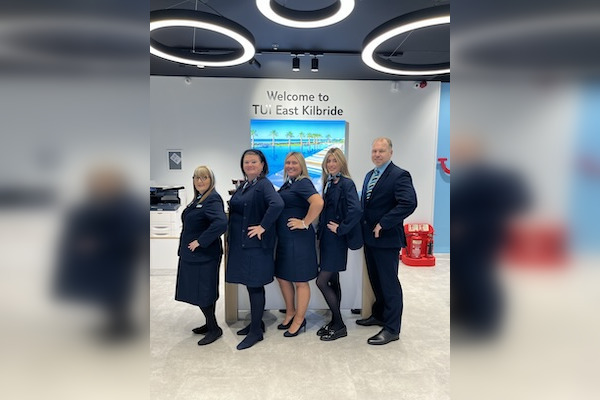10 steps for promoting diversity and inclusion in your business
Miranda Simms, Tui UK’s wellness and inclusion lead, has this advice for creating and driving forward a diversity and inclusion policy
1. Set key objectives
It’s really important to have clear policies and guidelines in place. Every business should have a written D&I policy. If you don’t have one for your business and don’t know where to start, outsource the work to an expert. If it means investing extra time or money to look after your people, it’s worth it.
2. Collect data
Take a look at your business. Does it represent the diverse world we live in? Do your employees represent your customer base? It’s vital to collect data, so you can track your progress on the way to achieving your goals for the business and share best-practice stories.
3. Make it part of a role
Designate a team of people, or one person if your business is small, to drive D&I and make sure it feeds into their role(s). It’s easy to get lost in the day job and lose focus on the importance of D&I if it’s not part of your objectives.
4. Encourage conversations
Conduct internal surveys, bring focus groups together, and involve minority group employees in reverse mentoring so senior management can listen from them and learn. All these actions create opportunities for feedback, which you can use to instigate change where it’s needed.
5. Be honest and vulnerable
We all need to get better at having uncomfortable conversations. Be honest. It’s OK to say “I don’t know the answer” to something. Explain that you’re keen to make a difference, but you need help. Vulnerability is key. But make sure you have a safe space where you can encourage colleagues to open up.
6. Create network groups
We’ve done a lot of work on building these groups at Tui UK. For example, we have a Caribbean and African networking group, which brings together colleagues from across the business who identify with those backgrounds as well as inviting all colleagues to become allies. We launched this group in September with a brunch, where we had food, drink, music and decorations all inspired by the regions, and colleagues took the time to socialise with each other – the educational side is really important. We also have similar groups relating to the Muslim, Jewish and LGBT+ communities, and we’ll create these wherever we feel there is a need for support and education.
7. Carrot before stick
Some of your conversations could potentially be with colleagues who don’t feel they are doing anything wrong. At Tui UK we offer virtual courses focused on micro aggression, unconscious bias and so on, and we find making these voluntary works, but if the voluntary approach isn’t working, you may want to consider making it mandatory that all colleagues follow the same guidelines.
8. Managers lead the way
Internal communications can help explain policies, but to make this real, senior management needs to stand up and be clear on what the business is doing and why. It’s really key that leaders drive this. It’s not a box ticking exercise – employees need to see their leaders rolling these strategies out.
9. Small steps lead to big changes
Don’t be afraid of the challenges you’ll face. It’s not easy to change overnight, but D&I is a marathon, not a sprint.
10. Make it part of your DNA
D&I strategy will be forever evolving. Times change, terminology changes, but we need to get to a place where equality and inclusivity is so natural, we don’t have to think about it all, like brushing our teeth! Once it becomes an intrinsic part of your business, you’ll successfully attract and retain a diverse workforce, who will feel a sense of belonging in the company – and that is the foundation for a successful business.
Speaking from experience
Miranda Simms recently moved into the newly created position of wellbeing and inclusion lead at Tui UK after 14 years in more operational roles for the company.
She’s excited to be at the forefront of planning Tui UK’s diversity and inclusion strategy, having faced racial prejudice herself. “Since childhood, I’ve had comments about my lips, my bum, my hair,” she explains. “I’ve even been stopped by the police, asking how I was able to afford the car I was driving.”
There was no one more excited than her 10-year-old daughter, Nevaeh, to learn about Simms’ new role. “She thought nothing could be cooler than making sure people can go away on their holidays, but then she was like, ‘OK, Mum, this is cool!’ She knows how important this is.”
Employee welfare has never been more critical, Simms says. “The events of the past few years have brought wellbeing, diversity and inclusion to the forefront of business minds; the death of George Floyd helped encourage businesses to talk about Black Lives Matter. Look after your people, and they will look after you.”















